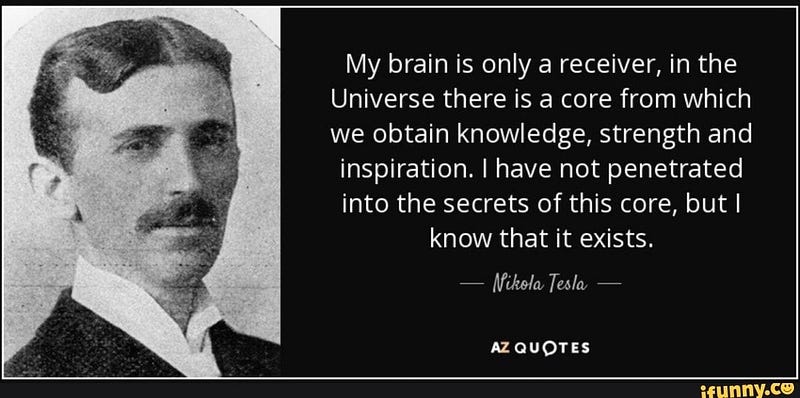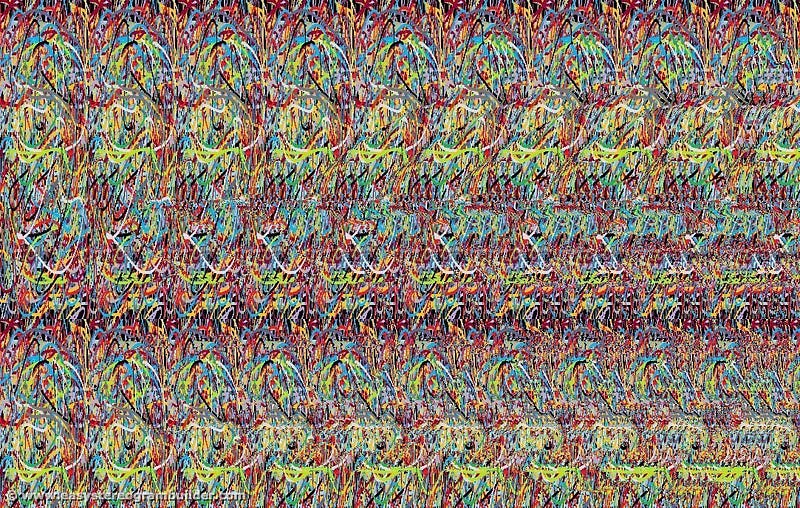Understanding the Brain's Role as a Transmitter and Receiver
Written on
The Brain's Power and Connectivity
The brain operates at approximately 20 Watts of power. According to research by the Heart Math Institute and Dr. Paul Pearsall, author of "The Heart’s Code," the heart generates electromagnetic energy that is 60 times stronger than that of the brain. Some theorists propose that the brain functions akin to a radio transceiver. If our DNA consists of crystalline structures, could we be likened to crystal radios? Imagine if we are merely mobile devices connected to a vast wireless network of consciousness, a collective of supercomputers functioning in unison. This redefines spirituality as the idea that we are not individual souls, but rather interconnected data sets.

The Fascinating Case of Hans Berger
Many might be unaware that Hans Berger, the pioneer of the EEG, sought to explain extrasensory perception (ESP) following a profound personal experience. While serving as a war surgeon, he received news of his father's death from his sister, despite being hundreds of miles apart. The timing of his experience aligned with his father's passing. This singular event fueled Berger's quest to discover brainwaves, a pursuit that initially drew skepticism from his colleagues. However, his findings on brainwaves have since become vital for understanding brain health. Today, we are progressing toward brain-computer interfaces that could eventually eliminate the need for external wiring, allowing for seamless communication akin to connecting to 5G networks.
Assuming the Interconnectedness of Minds
If the collision of two black holes can reverberate through the universe, could our thoughts do the same? Although our brains may seem insignificant in the grand scheme of space-time, they are certainly not without influence. Consider the possibility that our daily brain transmissions affect those around us—not just through mirror neurons, which may not function as previously thought. Are there variations in mirror neuron development among the visually impaired?
If we liken the brain to a computer, then its functions could be dictated by its programming. Emotions, often culturally defined rather than universal, are limited by our means of vocal and visual communication. But what if we are also linked through electrical signals? Could this explain ESP phenomena or the shared tranquility experienced during group meditation? Might the collective energy of multiple minds create a superconscious entity? This notion could reinterpret John Donne’s assertion that "no man is an island," and align with the biblical idea that where two or more gather, a greater presence is among them.
The Shadow Within
Trauma might lead to multiple personalities, not due to fragmentation, but because a multitude of identities coexist within us. This exploration can be daunting, as many shy away from the spooky implications of such ideas—elements akin to Jung's shadow work and the concept of spirits. Often, those who are defensive about their reality, especially when faced with uncomfortable truths, can react with anger.
Individual Brain Real Estate
What if our perception of individuality is misguided? Instead of distinct personalities, could we be a collective of diverse identities? If the number of human personalities is finite, does a growing population lead to increased individualization?
Might there be an advantage for these inner "ghosts" in keeping us unaware of a larger spiritual or mechanistic reality? Perhaps recognizing them would diminish their influence over us. My musings stem from a comment left on an essay about near-death experiences, prompting me to ponder why some react negatively to such conjectures. My aim is to synthesize various pieces of information into a coherent picture, and sometimes, this leads to unexpected revelations.

The Vision of Nikola Tesla
It seems that Tesla was onto something profound regarding the nature of consciousness and connectivity. Could the concept of pareidolia—seeing patterns in random stimuli—be more than a psychological phenomenon? Perhaps it indicates that there truly are "ghosts in the machine," where personality functions like a program, akin to a soul paradigm.
What are your thoughts on this exploration of consciousness and interconnectedness?
In the first video, "Brain as Receiver-Transmitter - Noetic Moments episode 28," the discussion revolves around the brain's potential to act as a receiver and transmitter of information, exploring the intersections of science and spirituality.
The second video, "How to Use Your Brain's Antennas," delves into the brain's capabilities in relation to perception and connectivity, further expanding on the concepts presented.